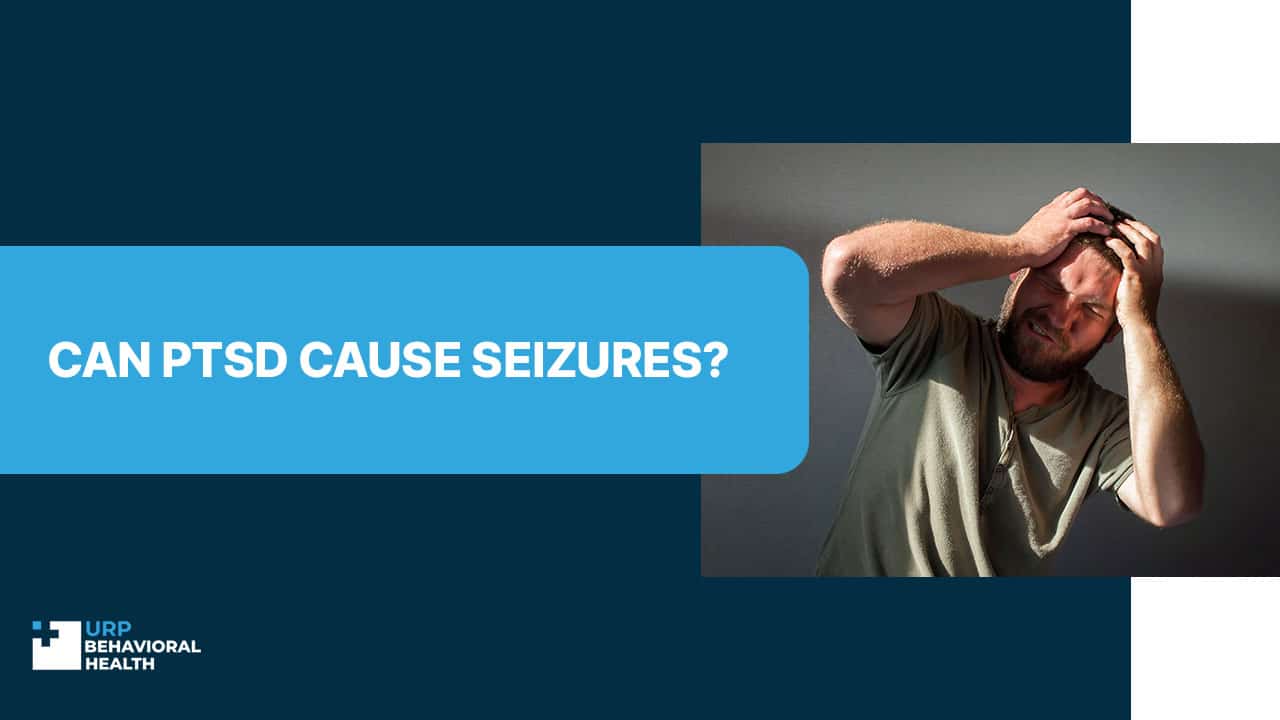
Can PTSD Cause Seizures?
Post-traumatic stress disorder occurs in an estimated 3.9% of the global population, WHO says [1]. Traumatic experiences lead to this mental health impairment and the sufferings from PTSD can be almost unbearable. Typically, the results of PTSD relate to mental symptoms like changes in behavior, nightmares, bad sleep, anxiety issues or flashbacks which drown you into emotions you felt during your trauma. Yet, do you know that there are also physical symptoms PTSD is associated with?
During the manifestation of PTSD, a person may experience the following physical symptoms [2]:
- Headache and migraine episodes;
- Increased heart rate;
- Sweating and limb trembling;
- Troubles with breathing;
- Nausea;
- Muscle tension.
Often patients who have PTSD ask does PTSD cause seizures. Let’s answer it and distinguish why they could happen and how to treat seizures from PTSD.
Don’t wait - confidential help is available right now for you or your loved one.
Can Post-Traumatic Stress Disorder Cause Seizures?
Post-traumatic stress disorder is a mental health condition occurring in people who have experienced or witnessed a traumatic situation or event. Although it is considered that PTSD typically emerges in people living in war zones or disaster-prone areas, PTSD can often manifest in people whose traumatic experience relates to their private lives, relationships, illnesses, and issues of psychological or physical abuse.
Among the most prominent symptoms of PTSD, seizures are not usually mentioned. Yet, scientific studies prove the correlation between PTSD and seizures. According to the study, PTSD and seizures are mutually correlating with the following results:
- Over ½ of investigated patients with diagnosed epilepsy of TES type and PS-PTSD type responded they had at least one traumatic event in their lifetime unrelated to their epilepsy.
- In 27%, trauma preceded the manifestation of epilepsy and seizures.
- Up to 60% of respondents had been diagnosed with mood disorders [3].
This outlines the answer to the question can you get seizures from PTSD. Yes, you can have them as a part of physical manifestations of trauma-related disorder.
Symptoms for PTSD Seizures
Although there is a correlation between epilepsy and PTSD, sometimes, PTSD-related seizures are not of epileptic origin. If your loved one is not diagnosed with epilepsy, and you suppose they have seizures, you can detect them by the following symptoms emerging:
- A person stares into the space intently;
- There is no response from a person when you speak to them;
- No tactile response for any interaction;
- Signs of dissociation with the body are present during seizure episodes;
- A person can fall down and not move being in a coma-like state.
All these signs may show you that a person is experiencing a seizure. Yet, how does it relate to the traumatic experience they had?
The Link Between PTSD and Seizures
What happens to the brain of a person with PTSD? As usual, when we face some stressful event, our stress response system is activated. It includes the hippocampus, the amygdala, and the prefrontal cortex in the brain when it operates normally, helps a person to respond to threats in three basic scenarios; run, hit or freeze. In the cases of acute trauma which causes PTSD, this stress response system becomes dysregulated and it cannot provide relevant responses to threats.
That’s why often PTSD-diagnosed persons have seizures which are abnormal reactions to distress. Typically, a re-traumatic event or thought triggers this mechanism, and a person with post-traumatic stress disorder can experience PTSD-induced seizures.
At once, seizures caused by PTSD are still a subject of discussion in the scientific community. There is a theory that they can be provoked by changes in the electrical activity of the brain caused by chronic stress. Besides, some neurotransmitters like GABA and glutamate may be involved in seizure occurrence.
We’ll help you understand your options and guide you toward care.
Types of Seizures Commonly Associated with PTSD
As we mentioned earlier, PTSD causes seizures of two basic types:
- Epileptic seizures that commonly are focal and tend to spread to become bilateral tonic-clonic seizures.
- Non-epileptic seizures which also often are psychogenic seizures with unknown onset. They are triggered by a re-traumatic experience.
What to Do If You Have PTSD Seizures?
The first and foremost thing you have to do if you suspect you have PTSD-related seizures is to contact your general practitioner. Only after thorough diagnostics is provided involving psychological and neurological examination you can get a relevant treatment.
The diagnostics of PTSD-inducted seizures include:
- Medical history evaluation;
- Physical examination;
- Specialized tests like EEG;
- Psychological testing to assess the impact of trauma on a patient.
These diagnostic methods then impact the choice of the therapy. Often, to reduce seizure episodes, medications should be prescribed along with psychotherapy and CBT methods. While medications help regulate the brain stress responding system and normalize neurotransmitters’ activity, psychotherapy and mental health rehab programs help patients and their families reduce the risks of triggering situations. The most effective mental health treatment methods are as follows:
- Psychotherapy sessions for both the individual and family;
- CBT practices;
- EMDP methods;
- Mindfulness and meditation practices.
Besides medication and mental health treatment, changes in the patient’s lifestyle may be helpful in fighting PTSD and seizures induced by this disorder. These changes may include:
- Rejection of bad habits;
- Regular physical exercises;
- Balanced diet;
- Self-care and relaxation activities.
The combo of these treatment methods with family support helps PTSD-diagnosed patients improve their overall well-being and mitigate the possibility of recurring seizures.
The Bottom Line
Seizures and PTSD are correlated as often traumatic experience inducts dysfunctions in the brain’s electrical activity and the stress response system. These seizures can be psychogenic or epileptic but they all badly impact the quality of a patient’s life. That’s why timely applying for the diagnostics and treatment is crucial. You can start with a visit to your primary care specialist and after neural and physical examination get support and help at the mental health treatment center. In URP Behavioral Health we provide comprehensive treatment for post-traumatic stress disorder and its main symptoms including seizures of various types. Just remember that you are not alone in your fight with PTSD and our practitioners can help you cope with your post-traumatic manifestations using top-notch methods tailored to your individual needs and your mental health specifics.
Our team will verify your insurance and design a plan tailored to your needs.
Resources:
- https://www.who.int/news-room/fact-sheets/detail/post-traumatic-stress-disorder#:~:text=An%20estimated%203.9%25%20of%20the,events%20do%20not%20develop%20PTSD.
- https://www.psychiatry.org/patients-families/ptsd/expert-q-and-a#:~:text=These%20could%20include%20increased%20heart,breathing%2C%20and%2For%20dizziness.
- https://pmc.ncbi.nlm.nih.gov/articles/PMC8296979/#s3
















